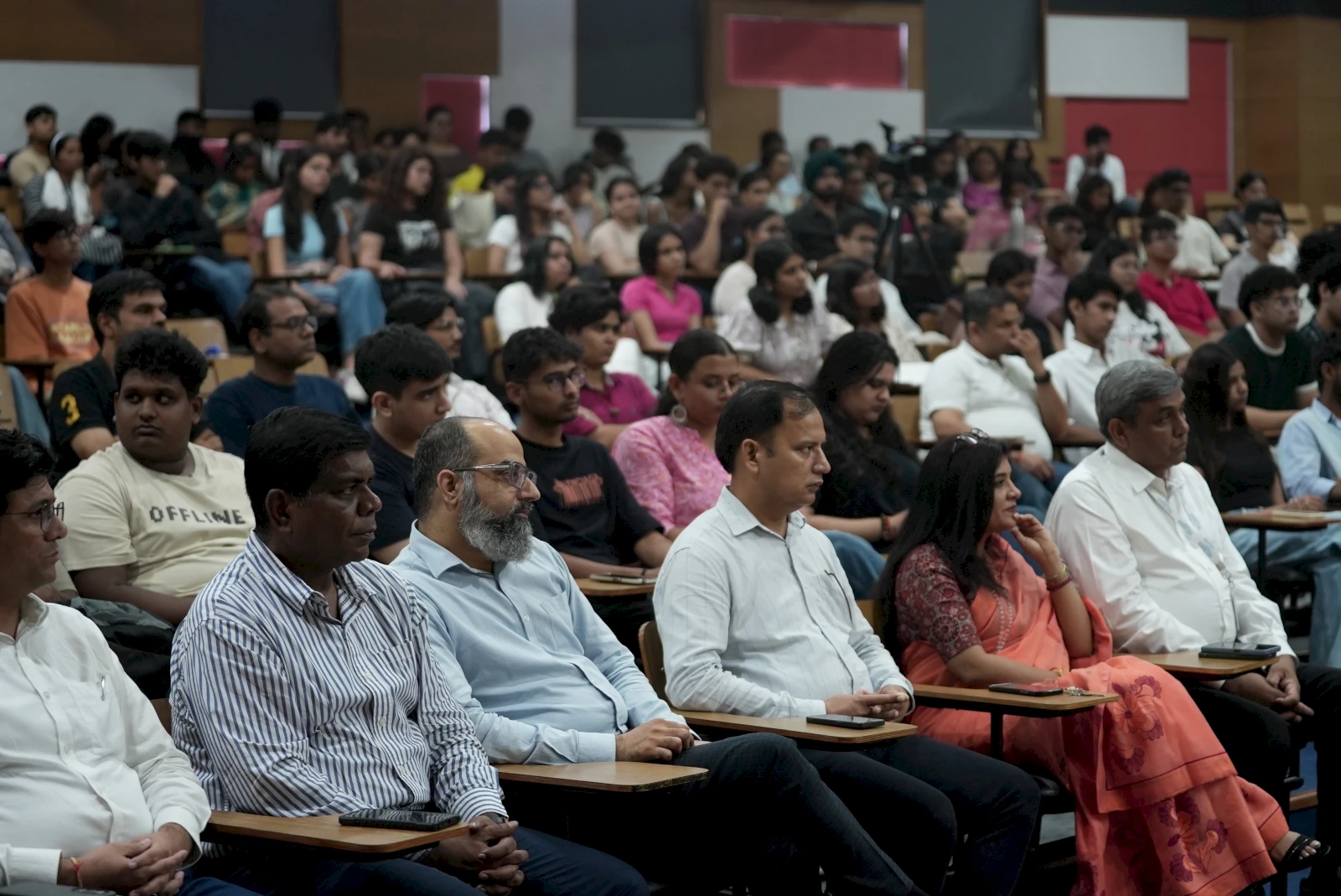'India cannot grow by ignoring half its talent'
India’s economic and social ambitions will remain a distant dream unless women are given equal opportunity, investment and safety, Kanta Singh, Country Representative of UN Women India, has warned.
Addressing a packed auditorium of faculty, students and staff at Shiv Nadar University on Tuesday, Singh delivered a stark message: gender inequality is the single biggest barrier holding India back. “Of all the Sustainable Development Goals, Goal Five – gender equality – is where we are lagging very badly,” she said. “It’s not just India; the story is the same across the world.”
Singh highlighted the yawning global gap in ownership and access to resources. “Eighty-seven per cent of land across the world is owned by men,” she said. “When you are so discriminated against in terms of real assets, there’s very little likelihood that you will succeed.”
The imbalance, she explained, filters into education and the workplace. While women constitute 45 per cent of students in science, technology, engineering and mathematics (STEM), only 17 per cent eventually enter the workforce. “Girls are prepared for marriage rather than careers,” Singh said. “Fortunately, more young women are now resisting that pressure, but the expectation still weighs heavily.”
Even for those who aspire to break out of these roles, safety remains a crippling barrier. “Every third woman has faced violence, and in practice it is closer to two out of three,” Singh said bluntly. “I haven’t met a single woman who hasn’t faced violence – at home, in public spaces or at work.”
She urged institutions, particularly universities, to consciously brand themselves as safe spaces. “Without safety, opportunity does not matter,” she warned.
Singh reserved some of her strongest criticism for the way Indian society limits the aspirations of young women. “Go across the country and ask a young woman what she wants to become. She never says ‘housewife’. Nobody invests in her dreams, nobody asks her. That’s why she cannot imagine being a leader – and even if she does, she is afraid she won’t get there.”
She added that women often train themselves for narrow roles because that is what society offers them. “Your dreams are only as big as your exposure. If you’ve had good teachers and schools, your dreams are big. But most girls are denied that exposure.”
Opening her speech, Singh drew on the lessons of sport to inspire the audience. “Sport teaches you it’s okay to lose – you should not be defeated. Success and achievement are two different things,” she said, urging young women not to fear failure.
The argument for gender equality, Singh stressed, is not just moral but economic. She drew a direct line between women’s participation in the workforce and national prosperity. “All developed countries have one thing in common – women in the workforce. If we are only choosing from 50 per cent of the talent pool, how can we expect to become a $5 trillion economy? A leader sets a vision and removes hurdles for others. You can be a leader in a community, in a home, in any profession. What matters is that we start investing in women’s education, in their dreams, and in their opportunities,” she said.
The session also featured a fireside chat with Shikhar Malhotra, Chancellor of Shiv Nadar University, who pointed to the institution’s ethos as rooted in progressive values instilled by founder Shiv Nadar. The fireside chat was moderated by Dr. Rajat Kathuria, Dean, School of Humanities and Social Sciences.
“It’s a bit of a funny topic at home,” Malhotra quipped, referring to the strong female role models in his own life. “I’m married to a woman who happens to be on the Fortune and Forbes list of the world’s 100 most powerful women. My mother-in-law is an Asian Games and Commonwealth Games medallist in bridge. And our Vice-Chancellor, Professor Ananya Mukherjee, leads an Institution of Eminence. The values we hold at Shiv Nadar University reflect that progressive vision.”
Malhotra emphasised the university’s commitment to creating an ecosystem where women can thrive. “We continue to build an environment where women can lead, innovate and inspire,” he said.
Her closing message was clear: boys and men must also be part of the change. “If boys are prepared to have a workforce around them that includes women, we can transform this nation. India cannot grow by ignoring half its talent.”
